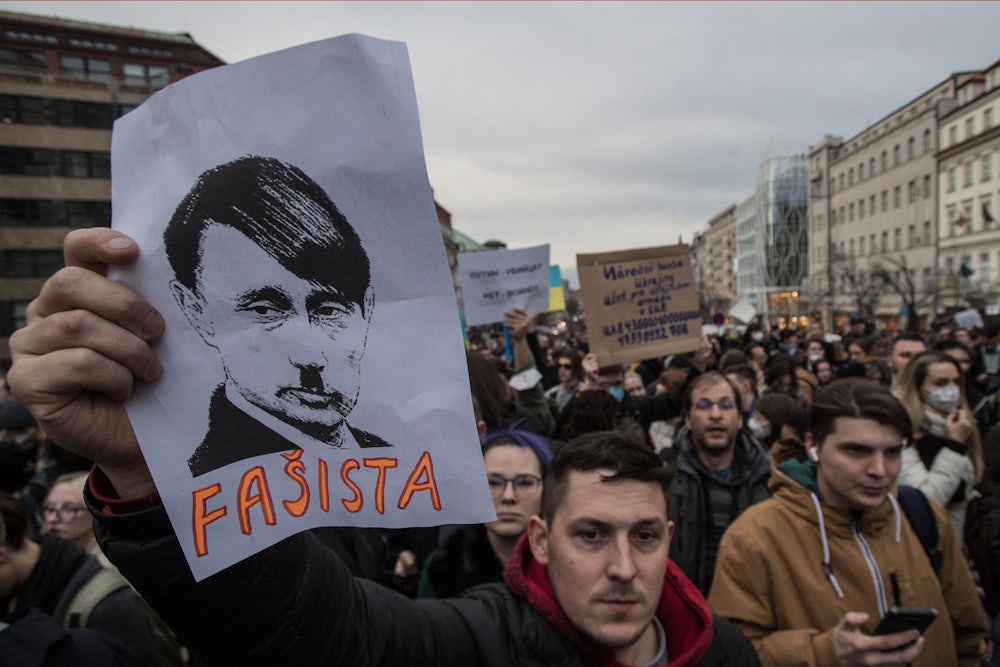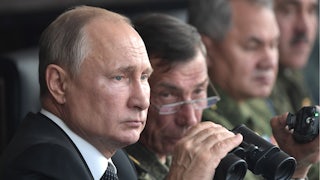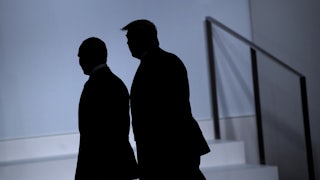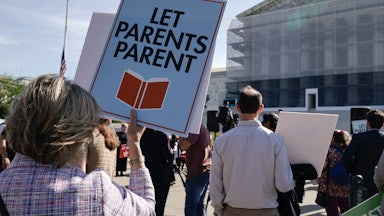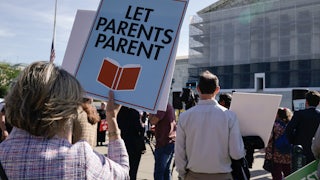Wednesday night, Russia launched a full-scale military invasion of Ukraine. In scenes reminiscent of the Balkan Wars of the 1990s and the American “shock and awe” campaign against Iraq, modern cities across Ukraine were enveloped in explosions and smoke plumes from missile and rocket attacks. It is an unmitigated tragedy and one that will likely cause grievous and needless suffering for the Ukrainian people, who have done nothing to deserve their current fate.
It is also an admission of failure by Russian President Vladimir Putin.
In going to war against Ukraine, Putin has tacitly acknowledged that Russia’s multiyear policy of coercion and bullying of Kyiv has failed. Russia’s hopes of keeping Ukraine in its sphere of influence without the use of military force have been dashed. The next few days and weeks will be ones of calamity and devastation. Our TV screens will be filled with the images of innocent civilians fleeing a Russian military onslaught and of Ukrainian soldiers who gave their last full measure of devotion. These will be tough to watch, as will images of a “victorious” Putin preening around the Kremlin. But make no mistake—Russia has already lost.
Putin’s failure dates back to eight years ago this month. Then, Ukrainians rose up en masse and deposed the country’s pro-Russian president, Victor Yanukovych, in the so-called Maidan Revolution. Weeks later, Putin sought to coerce Ukraine back into the Russian orbit. He seized and annexed Crimea and then launched a proxy war in Eastern Ukraine, which has continued for nearly eight years.
That led to the Minsk II Accords, intended to give pro-Russian Ukrainians greater autonomy in the country’s politics. But Putin’s moves had the opposite effect. Ukraine not only dragged its feet on implementation of the agreement but actively resisted Russia’s efforts to lure the nation back into Moscow’s orbit. Amazingly, Putin was the most popular politician in Ukraine in 2014, and few Ukrainians were interested in the country joining NATO. Now NATO membership has majority support and Putin’s popularity has, understandably, plummeted.
Ukraine began to increase its military and economic relationships with key NATO countries. And Ukraine’s leaders became more ostentatiously pro-Ukrainian and more willing to stand up to Putin’s bullying.
Indeed, the most obvious explanation for how we’ve reached this point is that Ukraine simply refused to give in to Russian coercion. When faced with the choice of subjugating its destiny to Russian diktats or going to war to defend its independence and sovereignty, Ukraine chose the latter.
It is Ukraine’s intransigence that ultimately backed Putin into a corner. There wasn’t just the issue of backing down and looking weak. Not to invade Ukraine would have meant accepting that Kyiv’s drift into the West’s political orbit was inevitable and unstoppable. Going to war was the only means left at Putin’s disposal to prevent it.
And yet that doesn’t mean that Putin’s gambit will succeed. The very fact that Ukraine was willing to accept war rather than Russian domination means that unless Moscow is willing to devote years (perhaps decades) of blood and treasure to stamping out Ukrainian independence, it will inevitably lose.
Beyond the borders of Ukraine, Putin’s disastrous decision will reverberate for years to come. Tough international sanctions are coming, and Russia’s economy (and the Russian people) will pay a price. So, too, will the Russian oligarch elite, who will likely find that their ability to jet off to London or the French Riviera or move their money to safe harbors around the world will be severely constrained.
But even worse will be the hit to Moscow’s international reputation. Russia is now a pariah state and its leader persona non grata. There will be no summit meetings with Western leaders in Putin’s future, and certainly no attendance at international conferences. So long as Putin remains in charge, Russia will be on the outside looking in when it comes to being a member in good standing of the international community.
Of course, there is one notable exception to the international umbrage being thrown at Putin: the former president of the United States and leading contender for the 2024 Republican nomination. In remarks over the past several days, Donald Trump has called Putin’s moves “savvy” and an “act of genius.” His acolytes in the Republican Party have blamed President Biden for the Russian decision to invade. Biden is working to assemble and maintain an international coalition to oppose Putin’s moves and impose sanctions on Moscow. Meanwhile he’s being undercut at home by the same group of Republicans who successfully shielded Trump from accountability after he was caught trying to hold military assistance to Ukraine hostage to his political ambitions.
Unfortunately, it is far from clear that they will pay a significant political price for their actions.
But for Putin and Russia, the die has been cast. The Russian leader decided that preventing Ukraine’s drift to the West was worth the price of war. Ukraine will pay a terrible price for that strategically inept decision. But Putin and Russia will, as well—not just today, but for many years to come.
